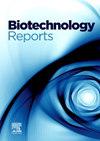Protective role of savory essential oil on vital organs in rats against deleterious effects induced by lead acetate
Q1 Immunology and Microbiology
引用次数: 0
Abstract
The damaging effects of heavy metal exposure on vital organs like the heart, liver, kidneys, and brain can be lowered by natural compounds' anti-inflammatory and anti-oxidant capacity. In the current investigation, the protective potential of savory(Saturejahortensis)essential oil (EO) against lead acetate-induced multi-organ damage in rats was evaluated. Thirty female Wister Albino rats were divided into the following groups: normal, positive control given lead acetate without concomitant treatment, reference given ethylene-diamine-tetra-acetic acid and groups treated with savory EO (0.5 and 1 ml/rat), treatments were administered concomitantly with lead acetate for ten successive days. Electrocardiogram (ECG), open field, and rota-rod tests for evaluation of behaviour, as well as TNF-α, R-GSH & MDA were measured in brain and liver homogenates respectively, CRP, liver, kidney, and heart function tests, were measured in serum. Histopathology of vital organs was conducted at the end of the experiment.A high dose of savory EO, significantly improved the cardiac electrophysiology, psychological state, and locomotor activity of rats; moreover, it lowered inflammatory, oxidative biomarkers, liver, kidney, and cardiac function tests of the rats. Savory EO protects vital organs against heavy metal damage with the superiority of the high dose.
香薰精油对大鼠重要器官抗醋酸铅毒性作用的保护作用。
重金属对心脏、肝脏、肾脏和大脑等重要器官的破坏性影响可以通过天然化合物的抗炎和抗氧化能力来降低。本研究评估了咸味(Saturejahortensis)精油(EO)对醋酸铅诱导的大鼠多器官损伤的保护作用。选取雌性Wister Albino大鼠30只,分为正常组、阳性对照组(不同时给予醋酸铅)、参照组(不同时给予乙二胺-四乙酸)和咸味EO组(0.5、1 ml/只),连续10 d。分别在脑和肝匀浆中测量心电图(ECG)、开野试验和旋转棒试验,以及TNF-α、R-GSH和MDA,在血清中测量CRP、肝脏、肾脏和心功能试验。实验结束时进行重要脏器组织病理学检查。大剂量咸味EO显著改善大鼠心脏电生理、心理状态和运动活动;此外,它还降低了大鼠的炎症、氧化生物标志物、肝脏、肾脏和心脏功能测试。咸味EO保护重要器官免受重金属损害与高剂量的优势。
本文章由计算机程序翻译,如有差异,请以英文原文为准。
求助全文
约1分钟内获得全文
求助全文
来源期刊

Biotechnology Reports
Immunology and Microbiology-Applied Microbiology and Biotechnology
CiteScore
15.80
自引率
0.00%
发文量
79
审稿时长
55 days
期刊介绍:
Biotechnology Reports covers all aspects of Biotechnology particularly those reports that are useful and informative and that will be of value to other researchers in related fields. Biotechnology Reports loves ground breaking science, but will also accept good science that can be of use to the biotechnology community. The journal maintains a high quality peer review where submissions are considered on the basis of scientific validity and technical quality. Acceptable paper types are research articles (short or full communications), methods, mini-reviews, and commentaries in the following areas: Healthcare and pharmaceutical biotechnology Agricultural and food biotechnology Environmental biotechnology Molecular biology, cell and tissue engineering and synthetic biology Industrial biotechnology, biofuels and bioenergy Nanobiotechnology Bioinformatics & systems biology New processes and products in biotechnology, bioprocess engineering.
 求助内容:
求助内容: 应助结果提醒方式:
应助结果提醒方式:


